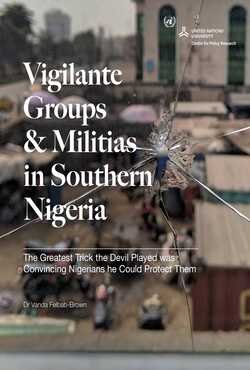By Yvon Dandurand, Lucia Bird Ruiz Benitez de Lugo, Kingsley Madueke and Oumar Zombre
State-centric approaches to building resilience to organised crime must be complemented with community-based, context-specific responses that challenge organised crime and violence at a local level. Local communities are key elements of the necessary response to the destabilising impacts of organised crime in conflict as well as post-conflict settings. There remains a gap in stakeholder understanding of the elements of community resilience to organised crime, particularly in unstable settings. This report starts to address this gap, by analysing key drivers of community resilience – identified as social capital, community capacity, the role of women, economic capital and infrastructure – in four communities in Nigeria, Guinea-Bissau and Burkina Faso.
Institute for Security Studies, 2022. 44p.




